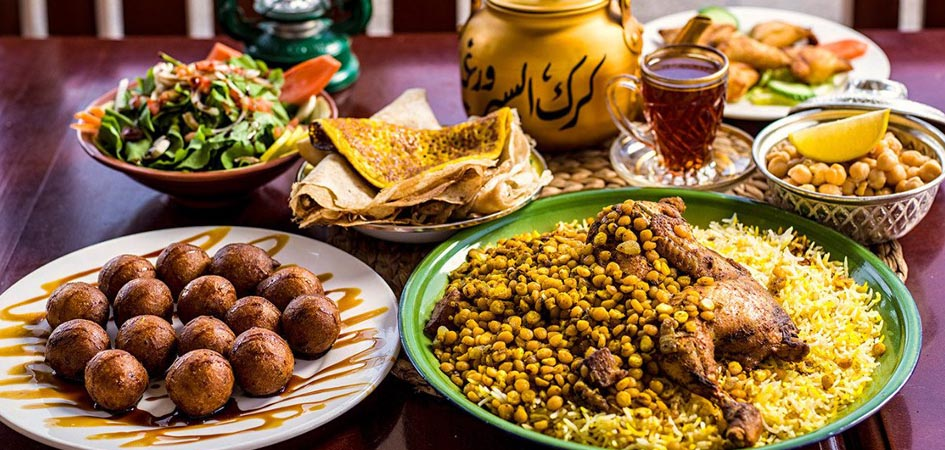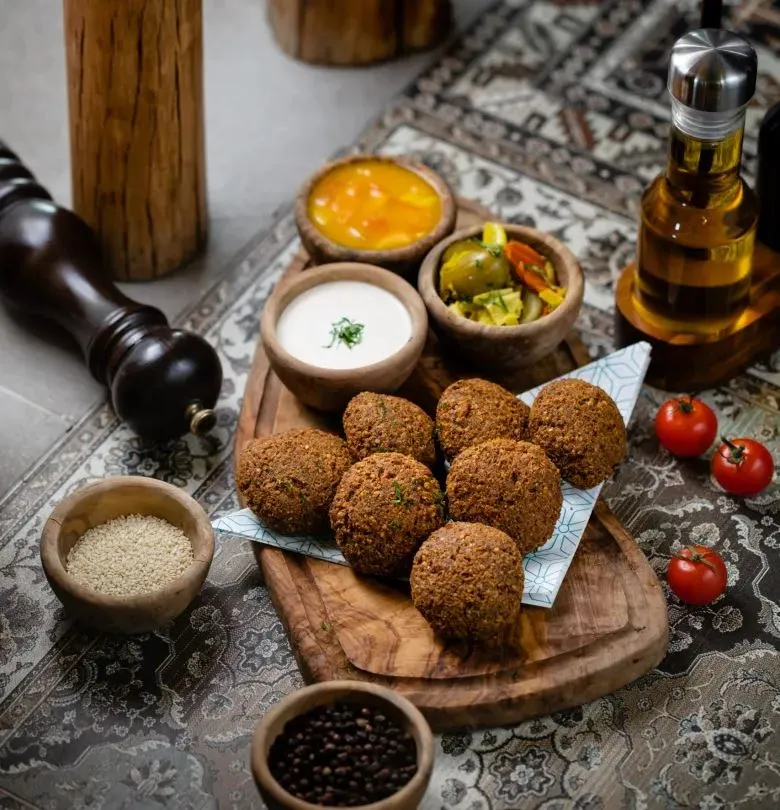
When people think of the United Arab Emirates (UAE), the towering skyscrapers of Dubai or the grand mosques of Abu Dhabi often come to mind. But beyond its modern attractions, the UAE has a rich and fascinating food culture that many visitors overlook. Emirati food and cuisine is a treasure chest of flavors, history, and traditions that reflect the country’s unique position at the crossroads of Asia, Africa, and the Middle East.
In this article, we explore what makes Emirati cuisine special, which dishes you must try, and why the food culture of the UAE deserves global recognition.

For centuries, the Emirates was home to three main lifestyles: the Bedouins of the desert, the fishermen of the coast, and the farmers of the oases. These ways of life shaped the ingredients and recipes of Emirati cooking.
Because of the harsh desert climate, early Emirati cuisine depended on what was easily available — dates, wheat, rice, fish, and camel or goat meat. Trade with India, Iran, and East Africa added spices like saffron, turmeric, cardamom, and cinnamon, which are still common in local dishes today.
Unlike its neighbors, Emirati cuisine is not heavy with sauces or rich dairy products. It focuses more on grilled, stewed, or slow-cooked meats, fragrant rice, and herbs. Simplicity, freshness, and balance define every plate.
If you want to experience the true taste of the UAE, these are some traditional Emirati dishes you should not miss:
A beloved dish during Ramadan and special occasions, Al Harees is made with only a few ingredients: wheat, meat (usually chicken or lamb), and a pinch of salt. The mixture is slow-cooked in a clay pot for several hours, producing a creamy, porridge-like texture. It is light yet filling — the perfect comfort food.
One of the most famous Emirati dishes, Al Machboos is rice cooked with meat (chicken, lamb, or seafood), onions, and a special spice mix called baharat. The addition of dried lime (loomi) gives it a unique sour kick. This dish is often the centerpiece of family gatherings.
A sweet and savory breakfast dish, Balaleet combines vermicelli noodles with sugar, cardamom, and saffron, topped with a thin omelet. It surprises first-time eaters but leaves a lasting impression.
This thick and flavorful stew is made with salted fish and spices. Traditionally, Emirati fishermen ate Madrooba after a long day at sea. It is hearty, spicy, and best enjoyed with flatbread.
A favorite dessert, Luqaimat are deep-fried dough balls drizzled with date syrup or honey. Crispy on the outside and soft inside, these sweet treats are often served during festivals.
Camel meat is a traditional protein in the UAE, served in special dishes like camel biryani or slow-roasted camel. It is rich and flavorful, perfect for adventurous food lovers.
No discussion about Emirati food is complete without mentioning dates and Arabic coffee (Gahwa). Dates are everywhere — from breakfast to desserts — and are considered a symbol of hospitality. Fresh or stuffed with nuts, dates offer sweetness and energy in the desert climate.
Arabic coffee, brewed with cardamom and served in small cups without sugar, is another sign of welcome. When visiting an Emirati home or even a business meeting, a cup of Gahwa is always offered.
While old recipes remain beloved, modern Emirati chefs are giving these dishes a fresh twist. Upscale restaurants in Dubai and Abu Dhabi are adding luxury ingredients like truffle, foie gras, or even gold leaf to Emirati recipes. Meanwhile, casual cafes are turning classics like Balaleet and Luqaimat into Instagram-worthy brunch items.
Events like Dubai Food Festival celebrate this blend of tradition and innovation, drawing food lovers from all over the world to experience the UAE’s culinary magic.
For many years, Emirati food remained a well-kept secret, overshadowed by other Middle Eastern cuisines like Lebanese, Turkish, or Iranian. But now, with the rise of tourism, social media, and global interest in authentic experiences, Emirati cuisine is stepping into the spotlight.
Restaurants such as Al Fanar, Seven Sands, and SMAT offer both locals and tourists the chance to enjoy true Emirati meals in a traditional setting. Food bloggers and YouTubers are also spreading the word, sharing their taste tests and cooking experiences online.
This global interest is not only good for the UAE’s economy but also for cultural understanding. Food is, after all, a universal language — and Emirati cuisine speaks volumes about the country’s generous spirit and history.

Emirati food and cuisine offer a window into the soul of the UAE — a land where the past meets the future in every bite. Whether you enjoy slow-cooked stews in a desert camp or sip coffee in a modern café, the flavors of the Emirates will stay with you long after your meal ends.
For anyone visiting the UAE, exploring its food is just as essential as visiting the Burj Khalifa or the Louvre Abu Dhabi. So next time you find yourself in the Emirates, make sure to taste your way through this delicious and unforgettable culture.
Read More:- Shobha Realty Launches Its Most Luxurious Project Yet—Full Details Inside 2025
